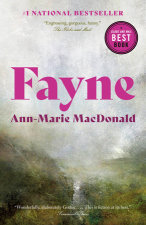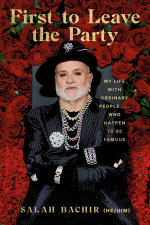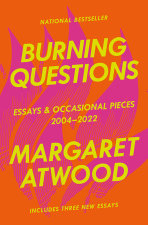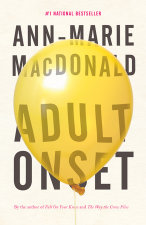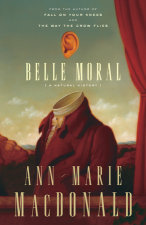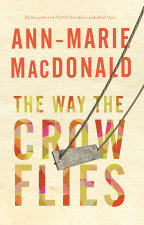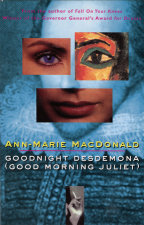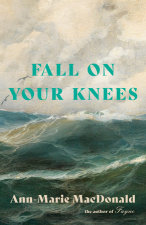Reading Guide
From The Way the Crow Flies

The Way the Crow Flies by Ann-Marie MacDonald
The literary event of 2003 is sure to top the trade paperback lists in 2004.
Paperback
1. We learn in the beginning that the girl who is murdered wears a charm bracelet. Why does the author introduce another charm bracelet, given by Mimi to Madeleine?
2. What does it tell us about Jack that he still thinks of his old teacher Simon as his best friend although he’s hardly seen him in twenty years?
3. Jack realizes long after other people that Froelich is Jewish. He thinks Madeleine is “sunny and light,” and he thinks school is a safe place. Like Madeleine, we start to feel sorry for him. Jack and Madeleine are shown simultaneously as innocents who are taken advantage of. As the parallel plot threads unfold, how do our feelings change about Jack?
4. Centralia is called “God’s country.” Madeleine muses on the idea that God loves the souls of children best of all: “They are his favourite. Yum. Like the giant in ‘Jack and the Beanstalk’.” She thinks guardian angels wait for something bad to happen to you and saints watch children being murdered. How do her observations of the cruelty of life affect our sense of justice in the world she inhabits?
5. How does keeping the secrets affect Madeleine and her father’s characters? Do you think there is a moral message to be found?
6. “There was actually quite a bit of intermarriage between the Acadians and the native Indians, wasn’t there?” asks Karen Froelich. It gradually becomes clear that Mimi, the Acadian who sings “un Acadien errant,” and Colleen, whose father played Cajun music and who says, “Chu en woyaugeur, ji rest partou,” have a shared ancestral past. What is the significance of this? How does the story of Ricky and Colleen reinforce the theme of government-sanctioned atrocity during war?
7. The way people dress seems to tell much about people’s characters in the novel. Discuss with reference to the Froelichs, Mimi, Marjorie Nolan and Madeleine.
8. Mimi says men understand less than women, and women have to work to make them feel good. How does Mimi’s insistence on femininity and looking after men affect the unfolding of the plot, if at all?
9. One reviewer has said “The finale comes as a thunderclap, rearranging the reader’s vision of everything that has gone before.” Do you agree with this statement?
10. What does the novel say about the nature of family love?
11. How did you feel about the “fairy tale” of the slaves in the mountain?
12. How do you interpret recurring animal symbols such as the deer (Bambi, the deer that appears when Madeleine and Colleen visit the place where Claire was killed, the deer that inadvertently killed Colleen and Ricky’s parents) and the dogs (Rex, the dog killed in the space Sputnik satellite, the dog in the drain the night Claire goes missing)?
From the Hardcover edition.

ANN-MARIE MACDONALD is an award-winning novelist, playwright, actor, and broadcast host. Her writing for the stage includes the plays Goodnight Desdemona (Good Morning Juliet), Belle Moral: A Natural History, and Hamlet-911, along with the libretto for the chamber opera Nigredo Hotel, and book and lyrics for the musical Anything That Moves. She is the author of the bestselling novels Fall on Your Knees, The Way the Crow Flies, and Adult Onset. Ann-Marie is a graduate of the Acting Program of The National Theatre School of Canada. In 2019 she was made an Officer of the Order of Canada in recognition of her contribution to the arts and her LGBTQ2SI+ activism. She is married to theatre director Alisa Palmer, with whom she…
